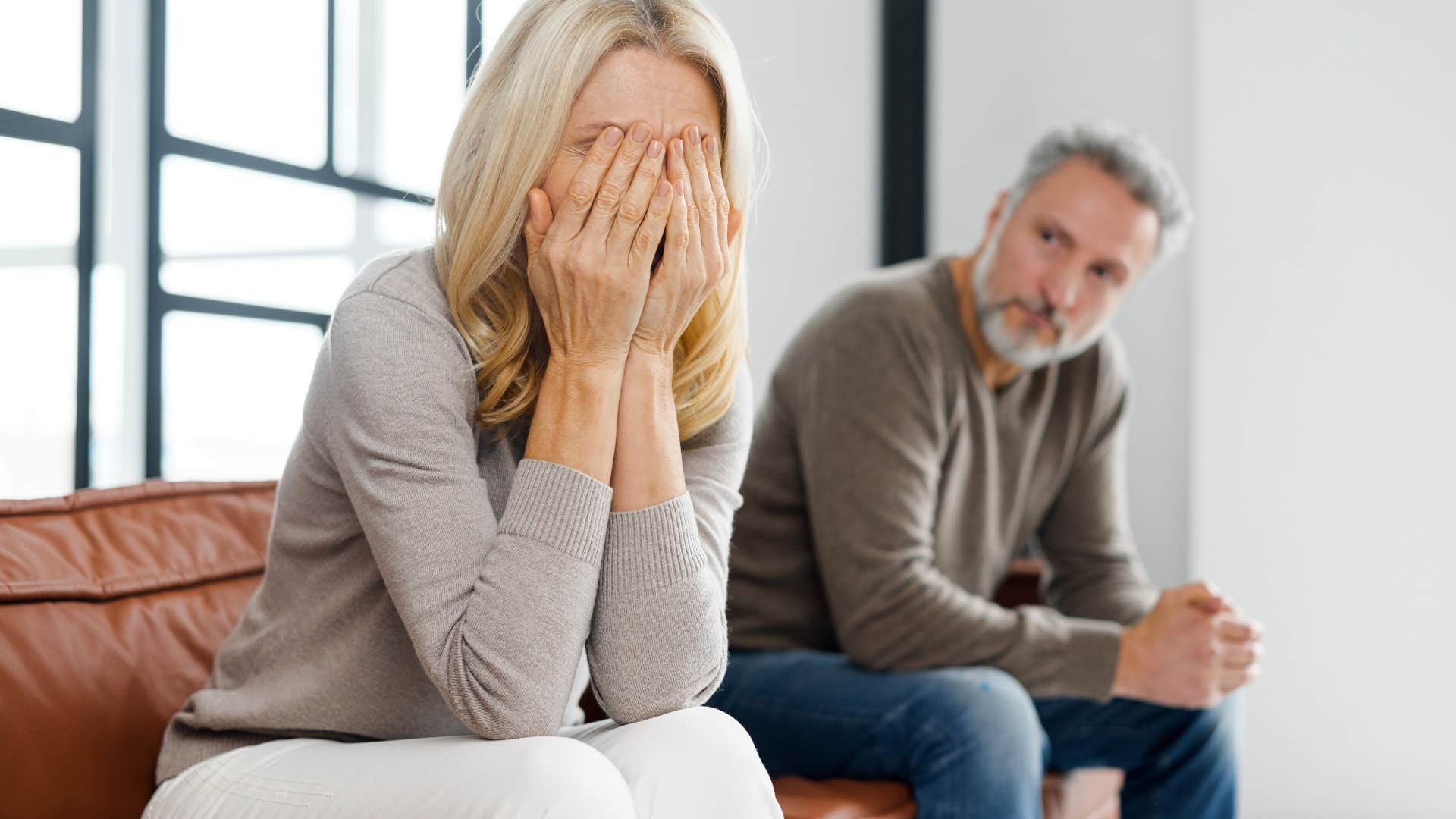6 Behaviors Controlling People Use To Assert Power Without Losing Your Trust
How some people easily manipulate others while keeping your trust.
 Andreu Zvyagintsev | Unsplash
Andreu Zvyagintsev | Unsplash Are you looking for signs of emotional abuse in a controlling relationship because you're wondering if you are in one yourself? Are you worried that you might be caught up in something that isn’t good for you, but you just aren’t sure if it qualifies as a con
Sometimes, you're too close to a relationship to recognize the signs that it's turned into something damaging. Your friends and family tell you it's controlling, but it’s hard to recognize because you're in it every day. You must know the signs of emotional abuse so that you can recognize whether it exists in your relationship and whether it’s time to get out.
Here are 7 behaviors controlling people use to assert power without losing your trust:
1. They act like they know what's best for you
 fizkes / Shutterstock
fizkes / Shutterstock
One big indicator of a toxic relationship is when one partner controls the other. Let's say someone has a partner who has complete control of her actions.
He dictated whether or not she could attend school, who her friends were, how she dressed when they would be intimate, and what she ate for every meal. He also told her that only he was allowed to end the relationship. She took it all for granted and assumed that's just how relationships were.
People in healthy relationships don't try to control the other person. People in healthy relationships give each other the freedom to live their lives their person. People who control everything their partner does are people who create toxicity and discord in a relationship.
Are you given the freedom to be who you want to be in your relationship? If not, there's emotional abuse in your relationship and you must recognize it.
2. They make you question your own reality
 Face Stock / Shutterstock
Face Stock / Shutterstock
A very important part of every healthy relationship is communication. This means talking about feelings and things that need to be done, but it’s also about making sure the other person knows they're loved and respected.
Does your person talk to you with love and affection, or do they lash out at you verbally? Do words spoken, either calmly or in anger, inflict pain? Is the language laced with profanity, words that belittle, and make you feel "less than"?
Words aren’t meant to inflict pain. Words can express anger and disappointment, but those words shouldn’t inflict pain, make you feel bad about yourself, or display disrespect. Pay attention. If your partner is repeatedly raising their voice and inflicting pain instead of expressing feelings, then you're most likely in an emotionally abusive relationship.
While some forms of control are overt, such as physical abuse or direct threats, others are more insidious and can leave the victim feeling confused and questioning their reality. One study suggested that a controlling partner might express disapproval of friends or family members, creating friction and causing the victim to distance themselves from their support network.
3. They make you think the way they treat you is their fault
 Shift Drive / Shutterstock
Shift Drive / Shutterstock
One of the hardest to recognize — but one of the most important — signs of emotional abuse in a relationship is the presence of contempt. Contempt is defined as "...the feeling that a person is beneath consideration, worthless, or deserving of scorn."
Signs of contempt include eye-rolling, unkind words, sarcasm, and dismissal. Contempt can be hard to recognize because it’s easily explained away. "Oh, I deserved that," or "He's just crabby," or "He was just showing off for his friends," are excuses often used to justify contempt.
Think about your interactions with your person. Is there contempt? Does your partner speak to you sarcastically? Do they talk about you behind your back? Do they roll their eyes when you try to make a point?
The number-one killer of relationships is contempt. When people treat each other contemptuously, the respect in the relationship is gone. And without respect, nothing else matters.
So, take a good, hard look at how your partner treats you. If there is contempt that causes pain, then there is emotional abuse in your relationship, and you should think about whether that is what you want going forward.
4. They over-apologize like a reflex
 Mladen Mitrinovic / Shutterstock
Mladen Mitrinovic / Shutterstock
One of the hallmarks of emotionally abusive relationships is the presence of apologies. Does your person belittle you and then apologize?
Does your person lash out at you verbally and then say they're sorry, but that you just drove them to it? Does your person treat you with contempt and then beg you to forgive them?
People who abuse other people often feel remorse — true remorse — after hurting their partners, and they apologize. That remorse doesn’t mean that they aren’t going to display that behavior again — just that they feel sorry at the moment.
Sooner or later, the abuse will begin anew. If you find that your relationship is full of apologies for bad behavior, then your relationship just might be emotionally abusive.
5. They use your insecurity to get what they want
 InesBazdar / Shutterstock
InesBazdar / Shutterstock
This sign of emotional abuse in a relationship has to do with your personality traits, not your partner’s. Do you struggle with your self-esteem?
Do you believe you're worthless, stupid, or friendless? Do you believe you're bad at everything you try to do? Do you believe you're fat, ugly, or undesirable?
Many people who are in an emotionally abusive relationship struggle with self-esteem issues — issues that they don’t think are the result of their partner’s behavior, but because of some huge deficiency in their character. Most people who are struggling in abusive relationships have lowered self-esteem, which is the result of the mistreatment.
So, how is your self-esteem? How was it before you were in this relationship? If you felt better about yourself before this relationship, then that's a sure sign your relationship is emotionally abusive.
People with low self-esteem may be more susceptible to manipulation due to their desire for validation and approval. A 2023 study explained that they may also struggle with asserting their needs and boundaries, making them more likely to succumb to a manipulator's demands.
6. They estrange you from your family and friends
 Yuri A / Shutterstock
Yuri A / Shutterstock
Another significant sign of emotional abuse in a relationship is that the abused person has been estranged from their friends and family. Many emotional abusers go out of their way to make sure their victims are alienated from their loved ones because doing so gives them more control.
As a result, loved ones — and the support they offer — are cut off from their abused family member, which only makes you more vulnerable to emotional abuse.
So, take stock of your relationships with your friends and family. Are they not what they used to be? And, if not, why?
I know you might believe that any disconnect is all your fault, but dig deeper to learn why your relationships are where they are right now. If you are in an emotionally abusive relationship, don’t forget your friends and family are out there to support you and help you escape!
Knowing the signs of emotional abuse in a relationship is a very important part of building a happy life. Often, when you're amid strife, it can be hard to see the truth. Others might tell you they see warning signs, but it might be hard for you to see them, too. Hopefully, now, you'll be more clearly able to see whether your relationship is a healthy one or not, and even be able to spot the signs of an unhealthy, emotionally abusive relationship if you start dating someone new.
Mitzi Bockmann is a NYC-based Certified Life Coach who works with individuals who strive to heal their toxic relationships so they can have their happily ever after. Mitzi's bylines have appeared in The Good Men Project, MSN, PopSugar, Prevention, Huffington Post, Psych Central, among many others.

